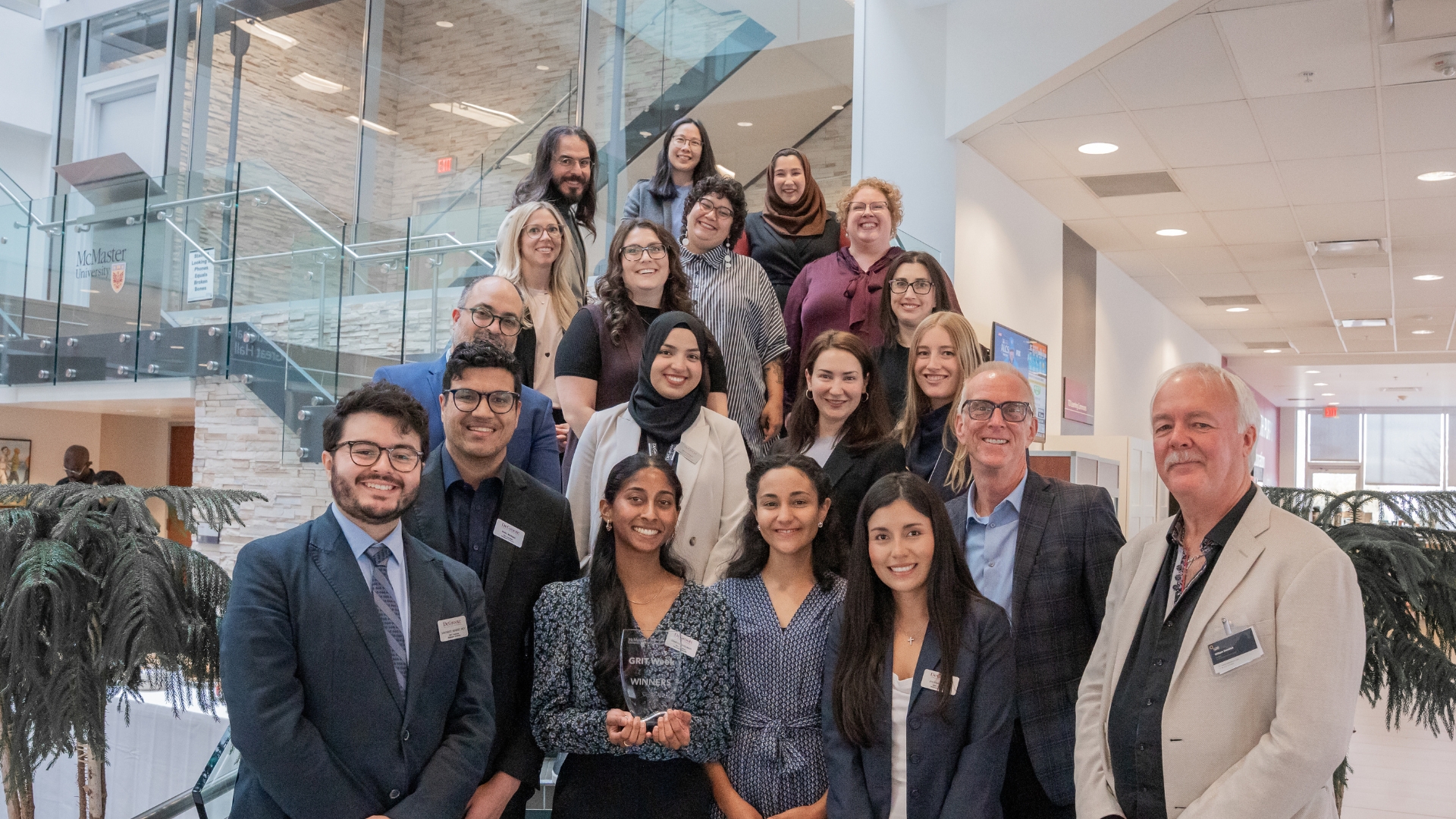HEALTH POLICY AND MANAGEMENT MCCD RESEARCH SOCIETAL IMPACT STRATEGIC PLAN | RESEARCH AND SCHOLARSHIP
Putting AI to work in Canada's economy
October 24, 2025 ·
Contributed by: Izabela Shubair, DeGroote Contributor

Canada helped spark the modern artificial intelligence (AI) revolution. Toronto and Montréal were home to some of the earliest deep learning labs and institutions, where research laid the groundwork for today’s generative AI. In 2017, the federal government reinforced its commitment with the Pan-Canadian AI Strategy—the first of its kind in the world.
Such pioneering efforts helped shape one of the strongest AI ecosystems globally, anchored by institutions including Ontario’s Vector Institute, the Alberta Machine Intelligence Institute (Amii), and Quebec’s Mila, and powered by 1,500 companies and 10 per cent of the world’s top AI researchers.
Yet after nearly a decade of innovation, the country is still catching up on putting the technology to work. In mid-2025, only 12.2 per cent of businesses reported adopting AI to produce goods and deliver services in the past year. By the third quarter, 66.7 per cent of businesses said they had no plans to adopt AI in this way.
For Canadian businesses, the real test—and opportunity—lies in turning innovation into responsible application, says Manaf Zargoush, a DeGroote School of Business researcher whose work applies machine learning and large language models (LLMs) to complex decision-making challenges. In 2026, when DeGroote opens the McLean Centre for Collaborative Discovery, Zargoush will lead its Data Analytics and AI Hub.
The current state of AI in Canadian business
“Canada remains a scientific powerhouse in AI research,” says Zargoush, who is also an associate professor of Health Policy and Management. “But countries like the U.S. and China are much faster at deploying AI and turning research into scalable businesses.
To keep pace, Canada needs stronger incentives for AI adoption in small and medium-sized enterprises, and support for translating academic breakthroughs into market solutions.”
According to Statistics Canada, the main reasons businesses do not plan to use AI to produce goods or deliver services over the next 12 months include a lack of knowledge of AI capabilities and concerns about privacy and security.
Behind these barriers, Zargoush sees deeper concerns about responsible use. He points to the lack of transparency in how AI models make decisions, which could create regulatory and reputational risks for organizations.
“AI systems can replicate and, even worse, amplify existing biases in data and in organizational practices,” he says. “That’s why a deep understanding of responsible AI application and implementation is essential. My team’s research shows that if we apply AI with transparency, fairness and accountability, we can identify biases and retrain systems to remove them.”
AI in action across sectors
While adoption currently remains limited, the payoff for businesses embracing AI is clear. A 2024 Business Development Bank of Canada study found that among small and medium-sized enterprises using AI, 97 per cent reported tangible benefits. These include greater efficiency, reduced costs, higher sales and improved customer service.
Zargoush sees similar potential across all sectors, from health care and finance to sustainability.
In health care, his work on delayed hospital discharge demonstrates how AI can anticipate bottlenecks and improve decision-making in long-term care allocation. In finance, he says, it’s transforming risk prediction and fraud detection, while in logistics, real-time supply chain optimization enables highly accurate demand forecasts. Even in sustainability, AI is helping energy companies reduce emissions and firms track environmental, social and governance (ESG) performance more rigorously, Zargoush says.
“For Canadian firms, integrating AI into sustainability strategy isn’t just good for the planet, it’s a competitive advantage for us in the global market, where ESG performance is increasingly important,” he says.
Unlocking AI’s full business value
The simplest and most promising application of AI across all sectors, Zargoush adds, is automating repetitive tasks and supporting human judgment to increase productivity. He points to an Accenture report estimating that automating just 20 per cent of nurses’ routine tasks could free up enough time to unlock $50 billion in value annually.
“AI isn’t necessarily about reducing headcounts,” he says. “It’s about enabling scarce human resources to work much more efficiently and responsibly. For instance, automating simple tasks such as chatbots responding to customer inquiries or tracking orders will help us go far beyond efficiency toward improving organizational agility.”
Business schools can help accelerate responsible application by shaping effective AI leaders, says Zargoush. DeGroote, for example, recently launched full-time and part-time Master of Management in AI programs emphasizing not only technical foundations but also strategic, ethical and societal dimensions.
“We know that application, rather than just developing new AI, is the critical gap in the current Canadian business landscape, economy and AI ecosystem,” he says. “Business schools can train leaders to ask the right questions, challenge assumptions and integrate AI into business and management strategies to guide AI-driven transformation responsibly.”















Great article. Please continue to write about AI.
Great article. Keep writing about AI. I do not understand enough to apply it.